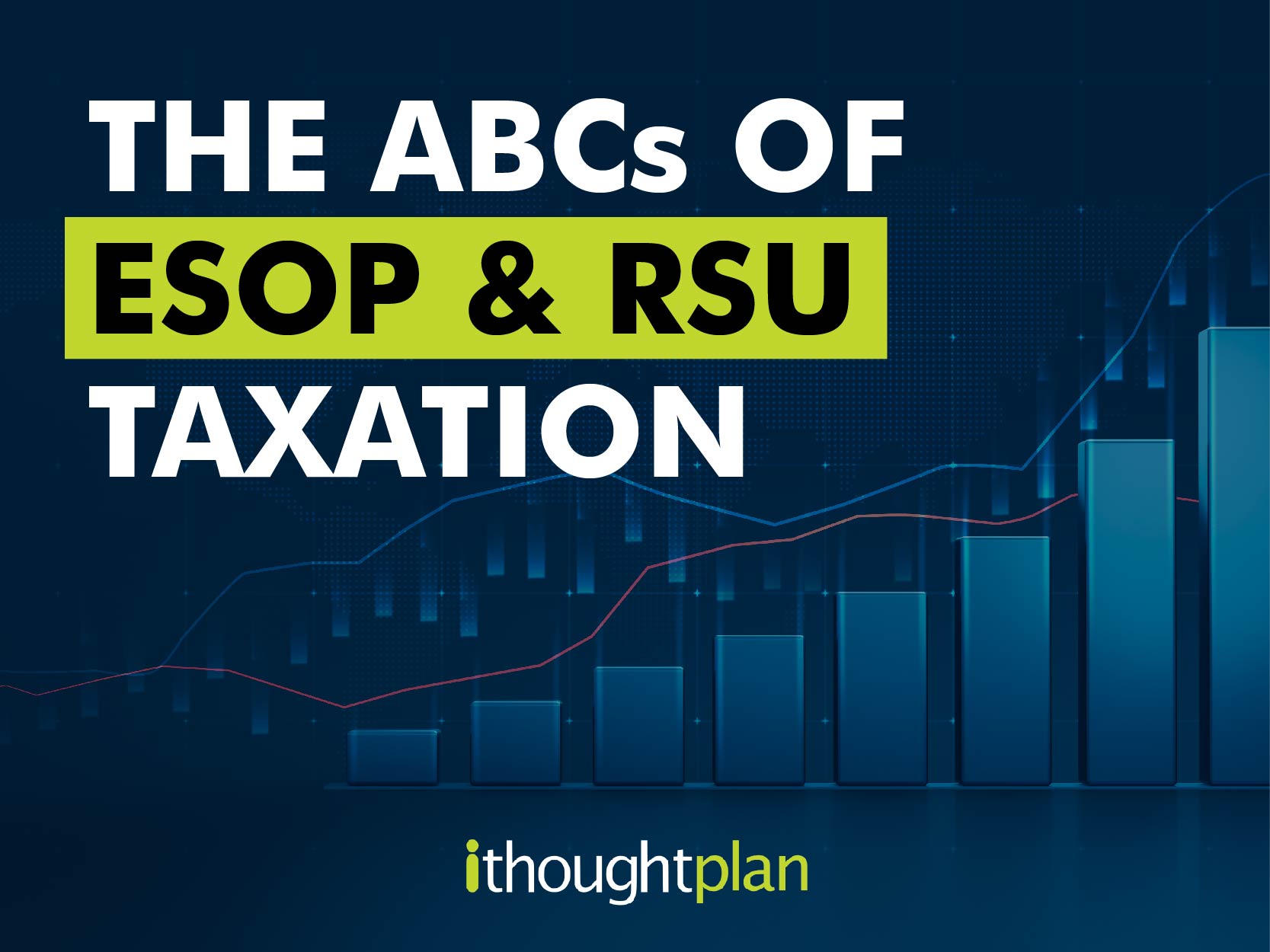
When companies aim to reward, retain, or motivate their workforce, stock-based compensation plans such as Employee Stock Option Plans (ESOPs) and Restricted Stock Units (RSUs) are popular choices. These plans not only offer employees a share in the company’s success but also align their interests with those of the business and its shareholders. However, understanding the tax implications of these benefits can be a complex affair, with rules differing widely across countries. This blog post seeks to clarify the taxation of ESOPs and RSUs in India and compare it with global standards from a taxation perspective.
WHAT ARE ESOPs & RSUs?
ESOPs grant employees the right to purchase company stock at a predetermined price after a specified period, known as the vesting period. If the company’s stock price increases over the period, employees can buy the stock at a discount, potentially earning a significant profit upon selling the shares.
RSUs, on the other hand, are company shares given to employees as part of their compensation, but these shares are also subject to a vesting period. Unlike ESOPs, employees don’t need to purchase RSUs; they receive them as they vest, making RSUs generally considered less risky than ESOPs from an employee’s perspective.
TAXATION IN INDIA
ESOPs:
In India, ESOPs are taxed in two stages:
-
-
- At Exercise: When employees exercise their options (purchase and convert the options to shares), the difference between the Exercise Price (price at which the employee buys the shares) and the Fair Market Value (FMV) of the shares on the exercise date is taxed as a prerequisite under the head ‘Income from Salaries’.
- At Sale: When these shares are eventually sold, the gain from the sale, calculated as the difference between the sale price and the FMV at the exercise date, is taxed as ‘Capital Gains’. The tax rate depends on whether it’s a short-term or long-term capital gain, determined by the holding period post-exercise.
-
Example of the Taxation of ESOPs:
First level of taxation (when the option is exercised):
On August 21, 2023, Mr Singh decided to exercise his option to purchase 10,000 shares of XYZ Corp. at an exercise price of INR 50 per share. The fair market value (FMV) of the shares on the exercise date was INR 90 per share.
The calculation of the perquisite value would be as follows:
Perquisite Value = (FMV per share – Exercise price per share) x Number of shares alloted
Perquisite Value = (90 – 50) x 10,000
Perquisite Value = INR 4,00,000
Thus, INR 4,00,000 would be added to Mr. Singh’s taxable income as a perquisite in the financial year 2023-24.
Second level of taxation (when the shares are sold):
On June 15, 2024, Mr Singh sold the shares at INR 130 per share.
The capital gains calculation on the sale of shares would be as follows:
Capital Gains = Sale price per share – FMV per share on the date of exercise
Capital Gains = 130 – 90
Capital Gains = INR 40 per share
Since the shares were held for more than 12 months, the capital gains would be treated as Long-term Capital Gains (LTCG). If the total capital gains on the sale of shares in the financial year 2024-25 exceeds INR 1 Lakh, Mr Singh would have to pay LTCG tax at the rate of 10% on the amount exceeding INR 1 Lakh.
RSUs:
RSUs in India are simpler in terms of taxation:
-
-
- At Vesting: The FMV of the shares at the date of vesting is considered as income under the head ‘Income from Salaries’ and is taxed accordingly.
- At Sale: Similar to ESOPs, any subsequent gain is taxed under ‘Capital Gains’.
-
Tax impact ( ESOP/RSU, Global Stocks, Unlisted Stocks)
| Asset | Short-term Tenure | Instance | Short-term Capital Gains Tax | Long-term Capital Gains Tax |
| RSU / ESOP (India) | <12 months | At the time of exercise – as a perquisite | STCG: 15% | LTCG: 10% on gains > Rs 1 Lakh |
| RSU / ESOP (Global) | <24 months | At the time of exercise – as a perquisite | STCG: Slab rates | LTCG: 20% with indexation benefit |
| Global Stocks | <24 months | – | STCG: Slab rates | LTCG: 20% with indexation benefit |
| Unlisted Stocks (India) | <24 months | – | STCG: Slab rates | LTCG: 20% with indexation benefit |
Note: The tax on global stocks and option plans would differ based on the region and their tax treaty.
TAKING CONTROL
Don’t let tax uncertainties cloud the potential benefits of ESOPs and RSUs. Seek guidance from tax professionals to ensure compliance and unlock the full potential of these valuable compensation tools.
Empower your financial journey by demystifying the taxation of your stock options now!”